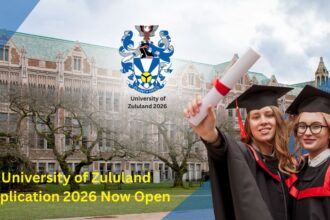College Admissions Is Changing – What Parents Must Know in 2026. The college admissions process in South Africa has entered a new phase, marked by uncertainty, rapid change, and technological disruption.
For many parents, this shift is more than just confusing, it’s overwhelming. Between changing enrollment trends, AI-driven tools, and growing questions around graduate outcomes, the landscape of tertiary education is becoming more complex than ever. So, what does this mean for South African parents and their children planning for the future?
Degree Is No Longer Enough
In July 2025, the Brookings Metro Report on youth economic mobility highlighted a harsh truth: “A high school diploma and even a college degree are no longer enough to ensure upward mobility.” The same reality applies to South Africa, where economic conditions, rising youth unemployment, and digital transformation are reshaping expectations around higher education.
Yes, college still holds value, but that value is no longer automatic. It must be earned, justified, and strategically aligned with today’s evolving job market.
Parents: Your Role Is Bigger Than Ever
As a parent, your responsibility now goes far beyond checking application dates and entrance requirements. You’re your child’s coach, strategist, and sounding board—helping them ask the right questions that go deeper than just “Which university is the best?”
Here are some critical questions parents should guide their children through:
- What do I want from my university experience?
- What support systems does the institution offer?
- How do graduates from this college perform in the job market?
- What are the student debt levels, and how long do graduates take to repay?
Redefining “Right Fit” for South African Students
We often hear about finding the “right fit” university. But what does that really mean in 2026?
Today, fit should not just refer to a student’s comfort on campus or whether they like the food in the cafeteria. It must include:
- Graduate employment rates
- Field-specific income outcomes
- Cost-to-value ratio of degrees
- Student support services
- Long-term return on investment (ROI)
| Factor | Why It Matters |
|---|---|
| Graduate Employment Rate | Indicates how soon graduates land jobs |
| Industry-Relevant Courses | Matches academic curriculum to job market needs |
| Student Debt Levels | Helps assess affordability and financial burden |
| Career Support & Internships | Reflects real-world preparation opportunities |
| Location & Lifestyle | Affects student well-being and daily satisfaction |
| Alumni Success Stories | Gives insights into the kind of life students can expect post-grad |
Over Prestige: What Happens After Graduation?
Instead of obsessing over university rankings or brand names, focus on outcomes. Parents should ask:
- What do graduates actually do?
- Which industries are they working in?
- What are the starting salaries for different degree programs?
- How do outcomes differ by field of study, gender, or socio-economic background?
Today, many global and even South African institutions are becoming more transparent by publishing first-destination data, graduate tracking dashboards, and alumni journeys.
Global Benchmark: What South Africa Can Learn from SeekUT
An example worth noting is the SeekUT dashboard by the University of Texas System. This public platform displays:
- Graduate earnings by major
- Student debt by program
- Job placement outcomes by institution
This level of transparency helps families make data-driven decisions, a concept that South African universities must begin adopting widely. Imagine having access to a dashboard that shows how a Bachelor of Commerce at UCT compares to one at Wits, based on employment rate and income levels within 12 months of graduation.
Financial Realities: Affordability and Value
South African families must also consider financial fit. It’s not just about whether you can pay tuition—it’s about the long-term cost-to-benefit ratio.
- Does this degree lead to employment quickly?
- What is the average salary after graduation?
- How much debt will my child accumulate?
- Are there bursaries or scholarships available?
Ask for fee transparency, and insist on understanding what you’re paying for—whether it’s practical training, online resources, or global exposure.
How Technology (Especially AI) Is Reshaping Admissions
AI is changing how institutions evaluate applicants and how students interact with universities. In South Africa, some institutions are beginning to use automated application systems, AI-driven career pathing tools, and even digital interviews.
Parents should familiarise themselves with these technologies and ensure their children are not just digitally literate, but AI-aware. Understanding how to write a standout application in the age of ChatGPT and AI-driven essay scanners is now part of the game.
Conclusion
The college admissions process in South Africa is no longer just about “getting in.” It’s about choosing smartly, preparing intentionally, and measuring outcomes. As a parent, you must help your child align their passion with realistic pathways to success.










